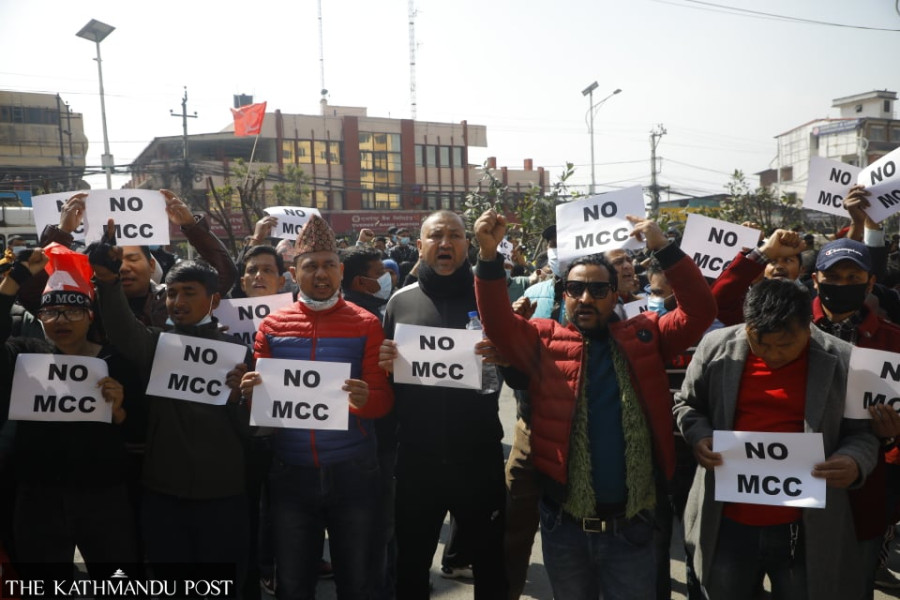Editorial
Make it work
Rather than argue over the MCC’s ‘hidden agenda’, the focus should be on its timely implementation.
Ever since Nepal signed an agreement with the American Millennium Challenge Corporation (MCC) in 2017, until the day of its ratification by Nepal’s federal Parliament in 2022, the country’s participation in the US aid programme was never far from controversy. Leftist parties cried foul at this imposition of “American imperialism” in a country precariously sandwiched between two big powers. The $500-million grant project involving building power transmission lines and highway upgrade was enmeshed in an unwanted geopolitical battle when Chinese officials in Nepal accused it of being a part of the Indo-Pacific Strategy (IPS), an American military construct to check China’s rise. The Americans didn’t help their own cause as one after another of their high-ranking officials continued to place the Nepal compact under the IPS, further fanning scepticism. It was in this charged climate that Nepal’s federal Parliament endorsed the compact last year.
The Parliament also endorsed an interpretative declaration that stated that if at a later date it was discovered that the compact was part of some American military strategy, Nepal had the right to pull out of it. The declaration also clarified that the compact was not above Nepal’s constitution. But then the Americans never formally owned up the declaration—until now. A day ahead of the compact’s entry into force on August 30, the American Embassy in Kathmandu confirmed to the Post that the US government agrees “with the interpretative declaration and consider it to be consistent with our understanding of the terms of the compact including the prevalence of the Constitution of Nepal over the MCC Nepal Compact.” We believe that should put a stop to all speculations about the compact’s “hidden agenda” and all energy should now be spent on its implementation within the five-year timeframe.
The Americans no doubt have strategic interests in Nepal, and the biggest of them is not to let the Chinese unduly increase their footprint on Nepali soil. This is why Nepal should be careful about joining any kind of strategic alliances like the IPS or the State Partnership Programme (SPP). That also applies to such partnerships with other countries including India and China. But as a country that has to carefully balance its external ties, Nepal also has no option but to accept specific infrastructure programmes like the MCC compact that countries with big pockets can fund. They help Nepal realise its development aspirations while maintaining constructive engagements with big global powers.
This is why Nepal must ensure the compact does not fail. If the transmission lines it envisions can be built in the next five years, that will be a milestone for such projects in Nepal, which typically linger for decades. As the country aspires to prosper through electricity, timely construction of such power infrastructure will be vital in the years ahead. In the past, contractors in such projects mainly faced problems with land acquisition and forest clearance and the MCA-Nepal, the special purpose vehicle implementing the compact, says it has a clear roadmap to tackle them. If that is the case, a wonderful precedent could be set. As the Nepali state and most of its political class has now taken ownership of the project, ensuring its success is also a matter of national prestige. The world is watching.




 16.12°C Kathmandu
16.12°C Kathmandu














